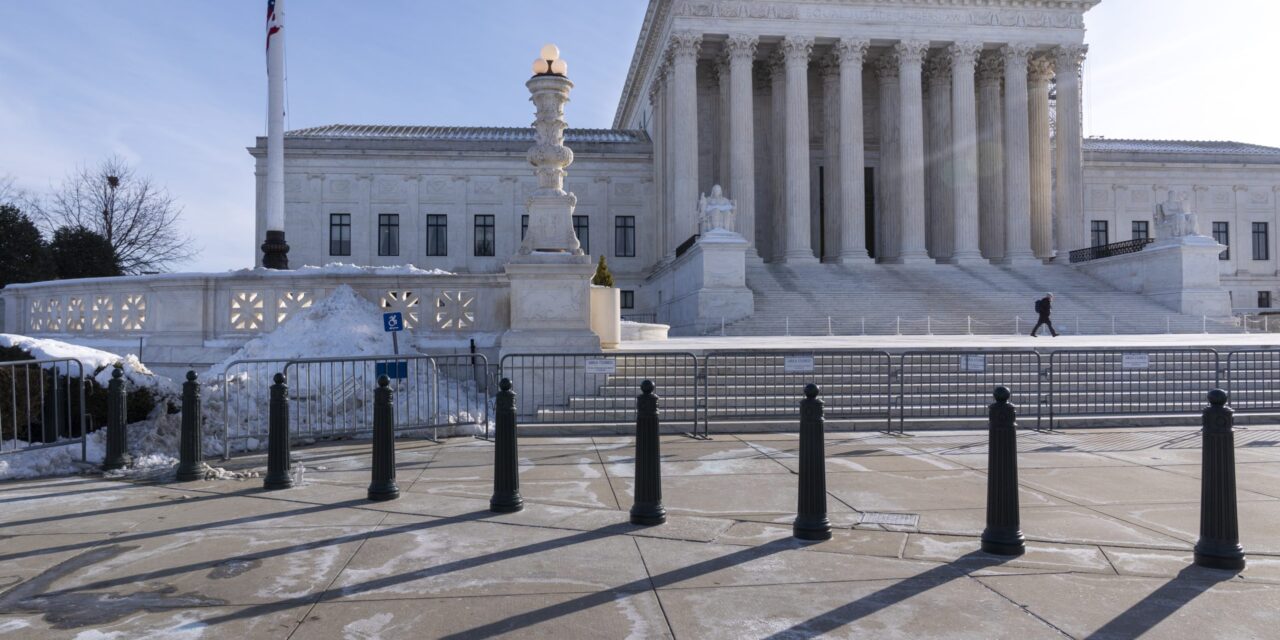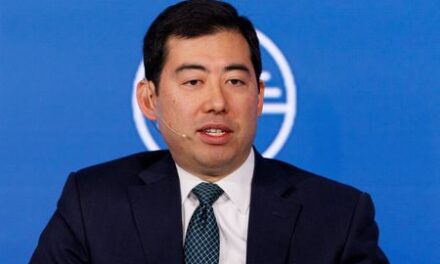This article is from: srnnews.com
WASHINGTON (AP) — The Supreme Court on Friday seemed likely to uphold a law that would ban TikTok in the United States beginning Jan. 19 unless the popular social media program is sold by its China-based parent company.
Hearing arguments in a momentous clash of free speech and national security concerns, the justices seemed persuaded by arguments that the national security threat posed by the company’s connections to China override concerns about restricting the speech, either of TikTok or its 170 million users in the United States.
Early in arguments that lasted more than two and a half hours, Chief Justice John Roberts identified as the “main concern” in the case TikTok’s ownership by China-based ByteDance and the parent company’s requirement to cooperate with the Chinese government’s intelligence operations.
If left in place, the law passed by bipartisan majorities in Congress and signed by President Joe Biden in April will require TikTok to “go dark” on Jan. 19, lawyer Noel Francisco told the justices on behalf of TikTok.
At the very least, Francisco urged, the justices should enter a temporary pause that would allow TikTok to keep operating. “We might be in a different world again” after President-elect Donald Trump takes office on Jan. 20. Trump, who has 14.7 million followers on TikTok, also has called for the deadline to be pushed back to give him time to negotiate a “political resolution.”
But it was not clear whether any justices would choose such a course. And only Justice Neil Gorsuch sounded like he would side with TikTok to find the ban violates the Constitution.
ByteDance has said it won’t sell the short-form video platform. But some investors have been eyeing it, including Trump’s Former Treasury Secretary Steven Mnuchi n and billionaire businessman Frank McCourt. On Thursday, McCourt’s Project Liberty initiative said it, along with its unnamed partners, presented a proposal to ByteDance to acquire TikTok’s U.S. assets. The consortium, which includes “Shark Tank” host Kevin O’Leary, did not disclose the financial terms of the offer.
If TikTok isn’t sold to an approved buyer, the federal law would prohibit app stores, such as those operated by Apple and Google, from offering the popular app. It would also bar internet hosting services from hosting TikTok.
TikTok users who already have the app on their phones will continue to have access to it. But new users won’t be able to download the app, and existing ones will no longer be able to receive updates. That will eventually render the app unworkable, the Justice Department has said in court filings.
The federal law was the culmination of a yearslong saga in Washington over TikTok, which the government sees as a national security threat due to its connections to China.
U.S. officials argue that the vast amounts of user data that TikTok collects, including sensitive information on viewing habits, could fall into the hands of the Chinese government through coercion. They also are concerned that the proprietary algorithm that fuels what users see on the app is vulnerable to manipulation by Chinese authorities, who could pressure ByteDance to shape content on the platform in a way that’s difficult to detect.
TikTok, which sued the government last year over the law, has long denied it could be used as a tool of Beijing.
The company negotiated with the Biden administration between 2021 and 2022 to resolve the concerns around U.S. data privacy and potential algorithmic manipulation. In court documents, it has accused the administration of essentially walking away from those negotiations after it presented a draft agreement in August 2022. But the Justice Department has said the Biden administration concluded the proposal was “insufficient” because it would maintain TikTok’s ties to China. The agency said the Executive Branch also could “neither trust ByteDance to comply nor detect noncompliance before it was too late.”
___
Associated Press writers Mae Anderson, Haleluya Hadero, Fatima Hussein, Didi Tang and Lindsay Whitehurst contributed to this report. Anderson reported from New York.
Brought to you by www.srnnews.com





















